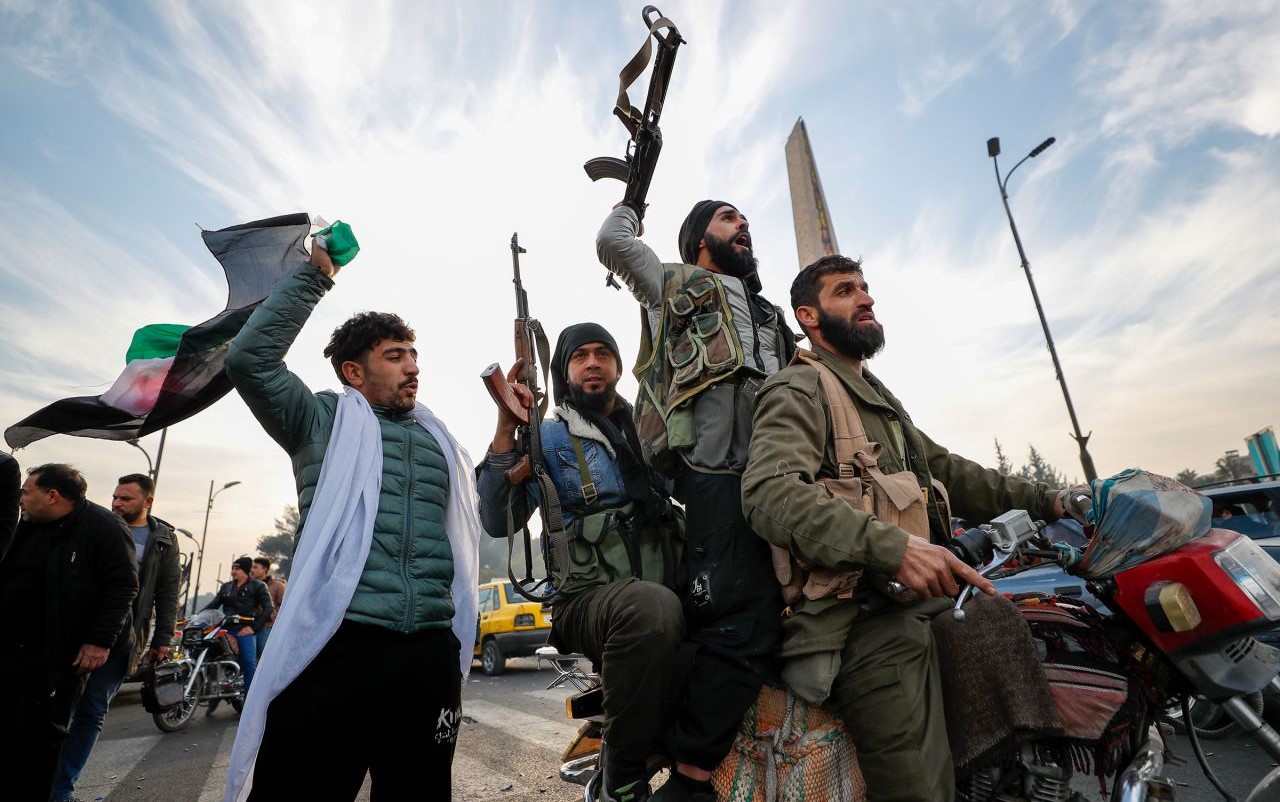Syrian Rebels
Syrian rebels declared on state television on Sunday that they had successfully ousted President Bashar al-Assad, ending a 50-year family dynasty in a swift and dramatic offensive.
This event marks a seismic shift in the region, raising concerns about a potential new wave of instability in a Middle East already grappling with numerous conflicts.
According to a Syrian officer informed of the situation, the army command confirmed that Assad’s regime had come to an end on Sunday. Following this development, the Prime Minister Mohammad Ghazi al-Jalali signaled a willingness to support a political transition as the rebels announced plans to oversee public institutions through the role of a “former prime minister” during this transition period.
Amidst this chaos, US President Joe Biden assured that the White House was monitoring the extraordinary developments in Syria closely and maintaining communication with regional allies.
Thousands of residents in Homs gathered in the streets to celebrate the fall of Assad, chanting slogans such as “Freedom” and “Assad is gone.” Celebrations spread through Damascus as rebels marched into the capital with minimal resistance, fueled by widespread frustration with Assad’s leadership and governance.
Adding to the uncertainty, reports suggested that Assad fled Damascus for an unknown destination earlier on Sunday, as two senior army officers indicated.
Some reports noted a Syrian aircraft departing from Damascus airport coinciding with these developments, which raised suspicions about the possibility of Assad being killed in a plane crash. These reports remain unconfirmed, but they highlight the precarious situation in Syria at this critical juncture.
The fall of Assad’s rule marks a significant blow to Russia and Iran, two key regional powers that had relied on the Syrian leader as a strategic ally. Many observers fear that the collapse of the Assad regime could give rise to new regional instability, especially as Hayat Tahrir al-Sham (HTS)—formerly an al-Qaeda affiliate—emerges as one of the dominant rebel factions.
HTS has spearheaded much of the recent rebel advance, and its growing influence could reshape the political future of Syria. Experts like Joshua Landis predict that HTS leader Abu Mohammed al-Golani is eager to ensure a transition without chaos, emphasizing the need for foreign assistance to lift sanctions and stabilize the region.
The humanitarian toll of this transition is also at the forefront. The civil war in Syria has already devastated the nation, displacing millions and killing hundreds of thousands since 2011.
The frontlines have been reshaped in the past week with the rebels capturing key areas, including the city of Homs, which severed Damascus’s strategic connection to the coastal region—the heart of Assad’s Alawite support base and home to Russian military assets such as naval and air bases.
Homs, once a symbol of prolonged siege warfare between rebels and the government, has now come under rebel control, serving as both a symbol of the insurgents’ advances and a critical strategic victory. Thousands of detainees were freed as rebels stormed local prisons, and security forces withdrew hastily, destroying official documents as they departed.
Kurdish leader Mazloum Abdi emphasized the historic nature of these developments, noting that the collapse of Assad’s regime represents an opportunity to establish a new Syria based on democracy, equality, and justice. His statement reflects hopes for a democratic transition that prioritizes the rights of all Syrians after years of authoritarian rule.
With Assad’s departure and the uncertain role of groups like HTS, Western governments, regional powers, and international organizations face significant challenges in stabilizing Syria and navigating this new geopolitical landscape.
While many Syrians celebrated the end of an oppressive era, questions remain about the future political order, the role of militias, and how foreign nations will interact with the emerging power vacuum. These rapid developments mark both the end of a regime and the beginning of a new, unpredictable chapter in Syria’s complex history.










